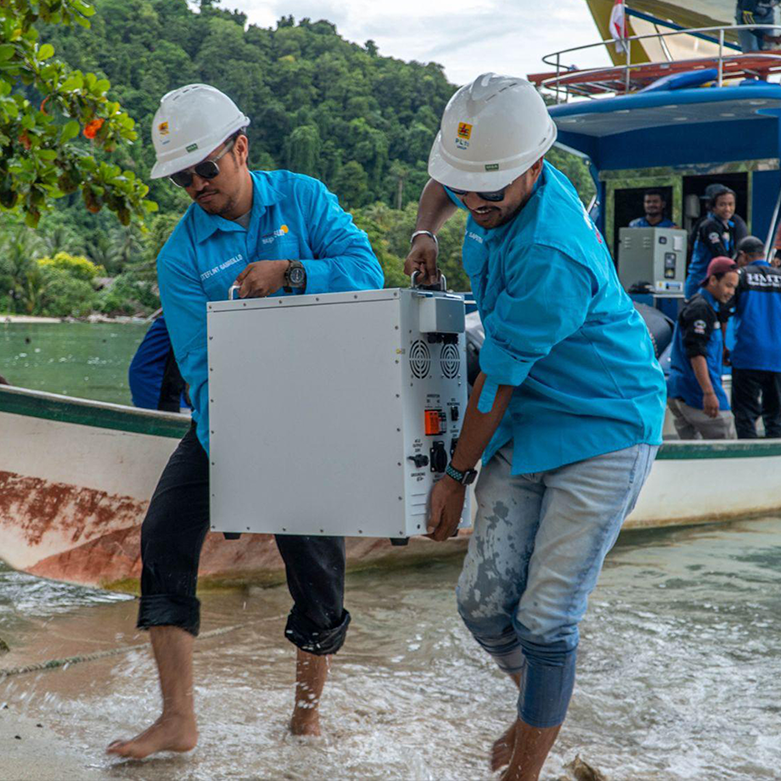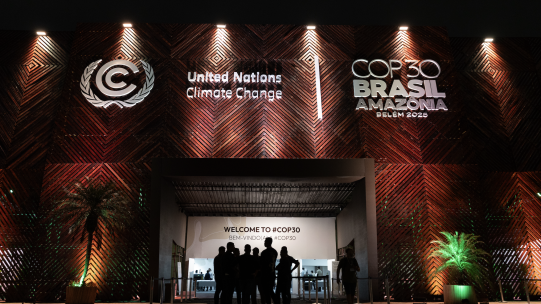Global Compact participant helps illuminate rural Indonesia with sustainable power
Read more

Isolated and largely undeveloped, Indonesia’s Papua province has struggled with a severe lack of access to electricity.
Without enough power, the local economy has been stunted, and everyday life can be difficult. The fishing industry lacks cold storage for its catch, and homes lack modern appliances, while clinics and schools lack critical tools and equipment. Communities rely on costly, polluting diesel generators or go without power altogether.
As of 2023, less than two-thirds of Papuan villages had access to electricity from PLN, Indonesia's state electricity company. That is a significant issue in a region that is home to more than 4 million people spread across a landmass roughly the size of California. The challenge of extending the traditional power grid is compounded by Papua's rugged terrain, dense rainforests and dispersed settlements, making it one of the most expensive regions in the world to electrify.
To assist in its efforts to electrify more of the country's remote areas, PLN, the state electricity company of Indonesia, participated in a SDG Innovation Accelerator for Young Professionals program of the UN Global Compact aimed at creating solutions aligned with the global goals in 2023. It went on to develop and launch SuperSUN, a compact, individual solar-based power unit designed to bring electricity to underserved regions.
Each SuperSUN unit comprises solar panels, batteries, a power inverter and a smart meter to provide a constant source of electricity to individual households. It is easy to install and maintain, with operating and maintenance costs of $16 per customer per year.
With an investment cost of $2,080 per customer, SuperSUN costs less than communal solar power plants which are $5,800 per customer and diesel power plants which are $4,000 per customer, according to PLN data.
SuperSUN units consist of solar panels, batteries, a power inverter and a smart meter.
So far, SuperSUN has electrified 43 villages across nine regencies in Indonesia, with each town receiving between 30 and 40 SuperSUN units. Plans call for expanding the initiative to 4,700 villages by 2025, aiming to prevent 4.3 million tons of CO2 emissions annually.
Yarweser, a coastal village in Raja Ampat, has been undergoing a transformation with the introduction of PLN's SuperSUN project, particularly with local ice production for its fishing industry.
"With the electricity, now people in Yarweser can produce ice cubes themselves and no longer have to travel far to Sorong just to get ice cubes," said Jhonisius Arwakon, a local fisherman.
More than 40 Indonesia villages have received between 30 and 40 SuperSUN units each.
The electricity means children can study after dark and enables women who make traditional handicrafts for income to extend their work hours. Households can utilize appliances for cooking and chores.
The project has not been without its challenges, saidDeskiniel, planning and business manager for Main Regional Papua & Papua Barat Department of Planning.
“We faced significant obstacles, including educating villagers on system use and maintenance, securing funding for expansion, and overcoming logistical hurdles in remote areas,” he said.
The project has succeeded, he added, due to collaboration with government agencies, international donors and local communities.

